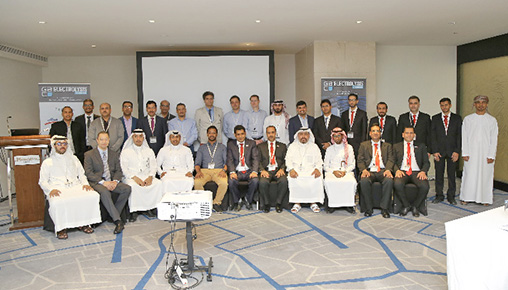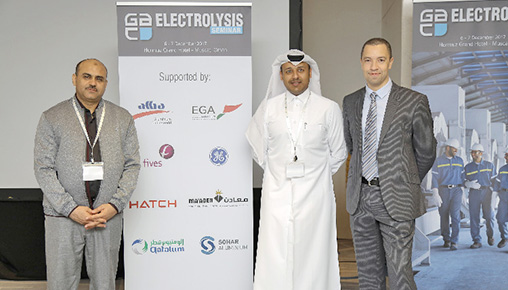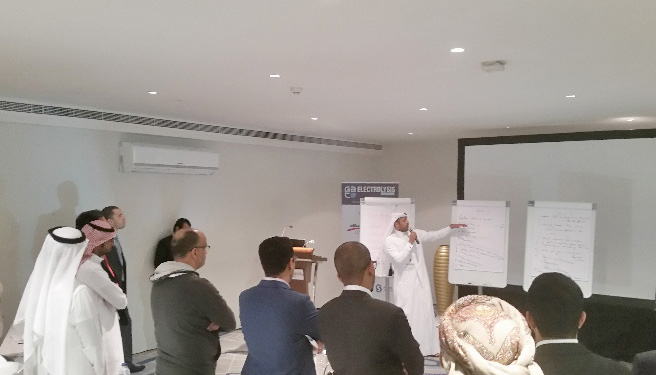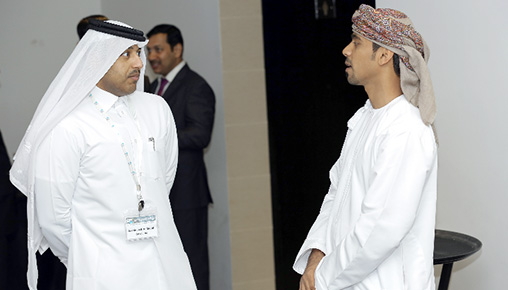
Qatalum recently participated in the annual Gulf Aluminium Council Seminar held in Muscat, Oman, in the first week of December. A delegation from Qatalum attended the two-day event that was on the 6th and 7th Dec. 2017
The event, over the years, has steadily built up a reputation of attracting the best technical minds from the aluminium industry in the region. This year’s seminar saw the attendance of technical staff from Alba, Ma’aden, EGA and Sohar, aside from Qatalum. In addition to a strong turn out from the aluminium manufacturing industry, suppliers such as Five Solios and General Electric had sent in representatives to the seminar as well.

Qatalum’s delegation conducted 3 presentations during the seminar, Potline Management in Non-Standard Situation by Mr. Ben Benkahla, Significant developments in the Determination of Iron Source in Molten Aluminium by Using Accumulation Ratio of Iron and Manganese was discussed by Mr. Yasser Mansour and finally Mr. Jassim Al-Mejali, Senior Booster Developing Engineer, provided insight into The Role of Key Impurity Elements of the Performance of Aluminium Electrolysis – Current Efficiency and Metal Quality.
Al-Mejali pointed out how the measurements in his studies showed that the retention time of phosphorus in the bath is much longer than for metallic impurities such as silicon. It was found that even small amounts of phosphorus are reduced at the cathode. Unlike phosphorus, large amounts of silicon were primarily reduced at the cathode and ended up in the metal. Furthermore, a mass balance of phosphorus for prebake cells was presented. It was also found that a massive amount of the phosphorus entering the cells was transported with the off-gases to the dry scrubbers. Al-Mejali also shared how Qatalum has been focused on improving and optimizing the methodologies of controlling and reviewing the specification of the raw materials.

Technical experts from other aluminium companies were keen to know more about a concern that challenged every smelter. There are two main sources of iron in molten metal. Iron comes from the cathode collector bar as well as from anode stubs. In his findings, Mansour proved that early determination of iron source can help in detection of collector bar attack or stub attack.
In addition to the presentations, this year’s GAC seminar also held workshops aimed at discussing challenges commonly faced by all smelters in the aluminium industry. The workshop, which saw delegates working in groups, was highly appreciated by the attendees as it offered them a platform to compare their respective smelters’ concerns and strategies against similar entities in the industry.

Al-Mejali quoted Qatalum has always recognised the relationship between growth and ongoing education and awareness. The company views such events as valuable opportunities to learn and understand more about the latest technical trends and breakthroughs that make the news. Such seminars also offer Qatalum’s staff a chance to strengthen the company’s network and presence, through interactions with people who represent some of the top-rated aluminium smelters in the world.

